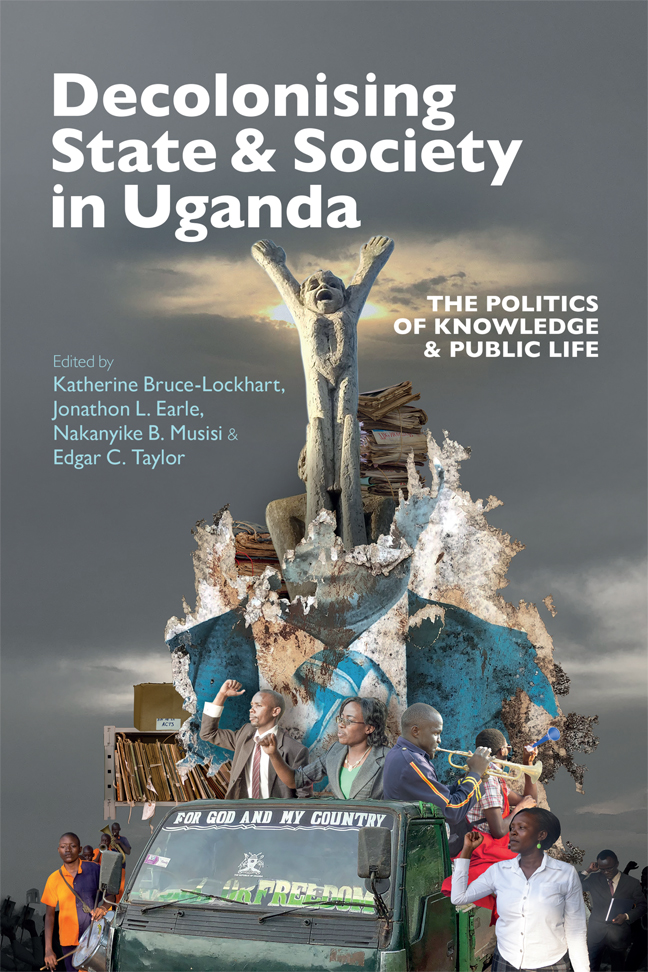10 - Higher Art Education and New Initiatives in Kampala: Potentials and Problems of Decolonising Knowledge
Published online by Cambridge University Press: 15 February 2024
Summary
Although visual arts seem to occupy a marginal place in the local and international perception and research of Uganda, they offer a field of comprehensible size to carve out the political, cultural, and economic complexities that characterise the politics of knowledge in contemporary Uganda. The arts have always been a field of representation and critical reflection about their society and offer a rich entry point to understand broader issues and debates of a nation. Similar to other academic disciplines, the majority of scholarly research on contemporary art in Uganda perpetuates postcolonial hierarchies, and narratives inherited from colonial times and ignores more recent platforms and institutions in which important debates are pursued and alternative knowledges produced. However, to understand decolonial tendencies in contemporary knowledge production – and the challenges they encounter – requires research on and with recent artist initiatives and institutions of knowledge production as well as established (post)colonial universities.
This chapter discusses and analyses established and more recent institutions as well as individual artist and curatorial initiatives in order to understand the current situation of contemporary visual art in Kampala. The focus of this chapter lies on the past twenty years after the Uganda Parliament passed the Universities and Other Tertiary Institutions Act in 2001. The Act provided a framework for establishing public institutions of higher learning besides Makerere University. The latter (as Makerere College) however played a crucial role in the establishment of modern Ugandan art as part of the University curriculum in the 1940s and 1950s. Its legacy is still felt today, and looking back to those colonial times helps to trace continuities and change up to today. Therefore, we first present established institutions of art formation, with a focus on Makerere University and Kyambogo University. The first prides itself on a glorious past but struggles with contemporary challenges while the latter is much younger but seems to more easily address contemporary requirements. In a second step, we discuss institutions that represent alternative sources of knowledge generation and acquisition in the field of contemporary African and international art trends. Associations, commercial galleries, NGOs and individual local initiatives contribute to the plurality of platforms in which artists and their audiences can engage. Among these, foreign-funded cultural institutions have gained a strong presence in the last ten to fifteen years but are also criticised for a neocolonial policy and interference.
- Type
- Chapter
- Information
- Decolonising State and Society in UgandaThe Politics of Knowledge and Public Life, pp. 222 - 244Publisher: Boydell & BrewerPrint publication year: 2022

